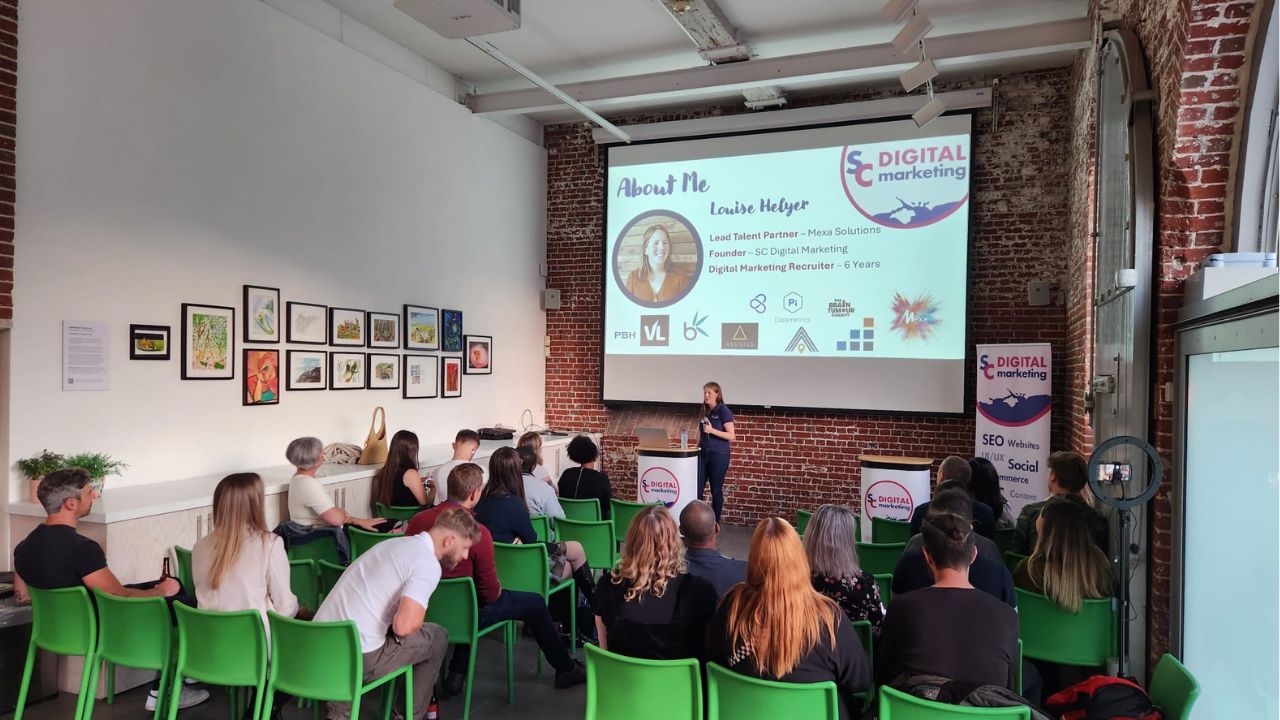Marketing in 2025 is already undergoing a dramatic transformation, and staying ahead requires swift adaptation. With digital marketing evolving at breakneck speed, understanding the top trends of the year is no longer a luxury. It is a necessity for brands looking to maximise ROI and stay competitive. Whether you are a digital marketer aiming to master emerging platforms like TikTok or part of a marketing team refining your content strategy, staying informed is crucial.
In this blog, we will cover the key marketing trends shaping the future of the industry in 2025 and how you can leverage them to stay ahead.
What Are the Key Marketing Trends for 2025 Marketers Need to Know?
Now that we’re in 2025, marketers are navigating a new era dominated by AI, short-form video, and data-driven decision-making. These powerful forces are reshaping how campaigns are planned and how content marketing strategies are executed.
1. AI Tools and Generative AI Revolutionise Content Creation
AI content tools like ChatGPT have moved beyond the hype and become essential for marketers. They enable faster, more scalable content creation that truly connects with audiences. Generative AI optimises digital marketing efforts by automating tasks such as email campaigns, social media ads, and SEO-friendly content development. Marketers who embrace AI in their campaigns can expect higher conversion rates and a measurable boost in ROI.
Notably, Google searches for “AI marketing tools” have increased by 967% over the past 24 months.
Here are a few practical ways that AI is being used in marketing:
-
Generating ideas: Tools like ChatGPT and other large language models assist marketers in brainstorming fresh campaign concepts, creative ads, and more.
-
Producing content: Accessible platforms such as Midjourney and DALL-E empower every team member to craft compelling ad copy and design social media visuals with ease.
2. Short-Form Video Content Dominates Digital Channels
Video marketing is far from new, but short-form video has taken centre stage on platforms like TikTok, Instagram Reels, and YouTube Shorts. Gen Z and millennials gravitate toward quick, engaging content that matches their fast-paced digital habits. As a result, brands that prioritise shorter videos are seeing higher engagement rates and stronger brand affinity, especially when those videos are optimized for social commerce.
Some marketers still view TikTok as a platform mainly for Gen Z, while others find short content challenging to navigate. However, the platform’s massive and growing user base is prompting more businesses to embrace it as a core part of their marketing strategy.
What sets TikTok apart is its exceptionally high user engagement, offering brands a valuable opportunity to build deeper, more authentic connections with their audiences. The platform is also evolving to better support business needs by introducing advanced tools and features tailored for marketers.
In addition, TikTok’s advertising platform is becoming a serious competitor to industry leaders like Google and Meta, making it an increasingly important.

3. Social Commerce Continues to Explode
Social commerce, which combines social media platforms with e-commerce, is experiencing rapid growth and transforming the way consumers shop online. Today’s shoppers expect seamless and convenient purchasing experiences directly within apps like Instagram and TikTok. This means social media ads are becoming more focused on driving immediate conversions rather than just raising awareness.
Platforms like TikTok have integrated direct shopping features, enabling users to browse and buy products without leaving the app. This reduces friction in the buying process and significantly increases conversion rates. By leveraging these tools, marketers can create more engaging, shoppable content that meets customers where they already spend their time and money.
4. Data Privacy Shifts Focus to First-Party Data and Trust
With third-party data restrictions tightening, marketers must prioritise first-party data collection. Building trust with customers through transparent data practices and delivering relevant content is a top marketing trend in 2025. This approach also aligns with consumer preferences for privacy and control over their data.
5. Influencer Marketing Becomes More Niche and Authentic
Influencer marketing evolves from broad reach to deep niche engagement. Marketers are moving beyond celebrity influencers to micro and nano influencers and content creators who resonate authentically with specific audiences. This strategy drives stronger customer relationships and higher ROI.
6. Advertisers Prioritise User-generated Content
One of the most significant trends linked to the growing demand for authenticity on social media is the rise of user generated content, or UGC. As consumers become more sceptical of polished and overly branded messaging, they increasingly turn to content created by real people, such as peers, influencers, or customers, for guidance and inspiration. User-generated content feels more relatable and trustworthy, making it a powerful tool for building credibility and community around a brand.
Beyond boosting authenticity, user-generated content can also be used strategically to support social causes and spark meaningful conversations. When brands share real stories, testimonials, or community-driven content that aligns with a cause or value, they not only drive higher engagement but also strengthen emotional connections with their audience. Campaigns built around user-generated content that reflect a brand’s mission can significantly increase reach, foster loyalty, and elevate the brand’s voice in a more genuine and impactful way.
How Will Marketers Stay Ahead of These Trends?
Staying ahead of marketing trends is not just about reading the latest reports. It is also about learning directly from industry experts. Attending events like the South Coast Marketing Event is a powerful way to stay current, gain practical insights, and connect with other professionals.
At our May event, for example, Becky Shepard delivered an insightful session on TikTok for Business, one of the hottest topics in digital marketing right now. Sessions like these give attendees real-world strategies they can apply immediately, helping them stay competitive in a rapidly evolving landscape.
Why These Marketing Trends Matter for Your 2025 Digital Marketing Strategy
Ignoring these trends risks losing ground to competitors who capitalise on evolving consumer behaviours and technology. Marketers who harness AI content, embrace how we now watch videos, and spot that social commerce continues to grow, which helps maximise marketing ROI and keep marketing campaigns fresh and effective.
Marketers across the B2B and B2C sectors must combine proven content marketing trends with innovative tools to create campaigns that resonate and convert. Staying ahead is not about chasing every new tool but integrating the right strategies that align with customer preferences and global shifts.
Digital Marketing Trends for 2025 FAQ’s
Which digital marketing trends should marketing teams prioritise?
Focus on integrating AI-powered marketing tools, short video content, and social commerce strategies while balancing privacy concerns through first-party data use.
How can marketers create content that resonates with Gen Z and millennials?
By delivering authentic, emotionally engaging, and interactive content, using platforms like TikTok and Instagram. Using AI tools to tailor messages ensures relevance.
What role will SEO play in 2025 marketing strategies?
SEO remains crucial but evolves with AI-generated content and voice/visual search optimization, ensuring brands stay visible on digital channels.
Is email marketing still effective in 2025?
Yes, email marketing remains one of the most effective and measurable digital marketing channels in 2025. With the help of Artificial Intelligence and advanced segmentation tools, marketers can deliver highly personalised content that drives engagement and conversions. When combined with strategies like automation and A/B testing, email marketing continues to offer strong ROI and plays a vital role in nurturing customer relationships.



